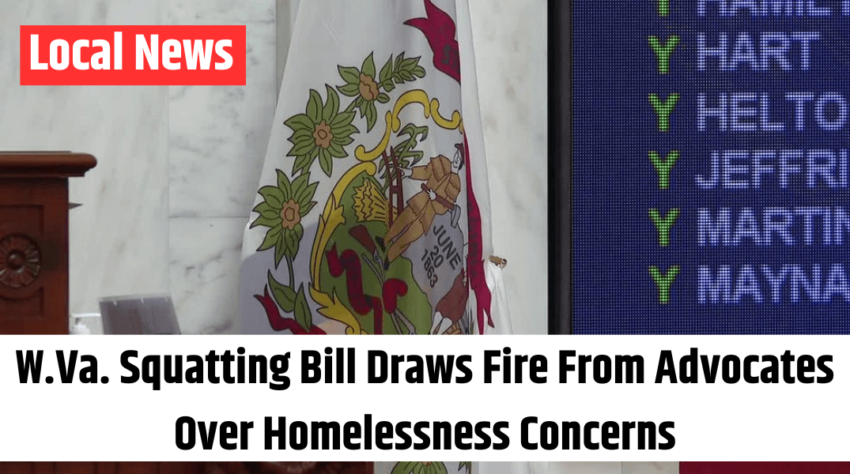CHARLESTON, W.Va. — Lawmakers in West Virginia are looking to address the issue of illegal occupancy with House Bill 2434, which would tighten regulations on individuals unlawfully living in residential or commercial properties — commonly known as squatters.
The proposed legislation is designed to give property owners quicker legal remedies by enhancing enforcement tools and offering both criminal and civil protections against unauthorized occupants.
“This is something that has become a growing issue across the country,” said Sen. Mike Stuart (R-Kanawha). “We want to get ahead of it here in West Virginia before it escalates.”
The bill clearly defines a squatter as anyone occupying a home or building without a lease, rental agreement, or permission from the rightful owner or tenant. Stuart believes early legislative action is crucial to avoid larger complications in the future.
“This is a proactive and reasonable step,” he said.
In 2023, over 1,400 West Virginians were reported as experiencing homelessness, according to the West Virginia Department of Human Services. Stuart acknowledged the delicate balance the legislation must strike between protecting property rights and addressing homelessness.
Also Read – 2 West Virginia Political Candidates Indicted for Election Fraud
“I understand the complexity of homelessness,” he said. “We need to continue offering resources and assistance to help people improve their situations. But allowing individuals to unlawfully move into empty properties is not a solution — it only burdens the rightful owners and delays justice.”
However, some advocates argue that while the intent may be justified, the bill falls short in addressing the core problem — lack of housing.
Traci Strickland, director of the Kanawha Valley Collective, an organization working to reduce homelessness in the region, expressed concerns about the legislation’s focus.
“Squatting isn’t ideal, but this bill doesn’t offer any real answers,” she said. “What’s needed are comprehensive solutions — more shelter beds, more housing programs, and long-term support. We can’t solve homelessness through enforcement alone.”
Strickland, who manages several shelters in the area, added that the existing facilities are often at capacity and unable to meet the full demand for emergency housing.
As the debate continues, supporters of House Bill 2434 argue it’s about restoring property rights and deterring illegal activity, while critics emphasize the need for a broader approach that includes expanding housing options and social services .
